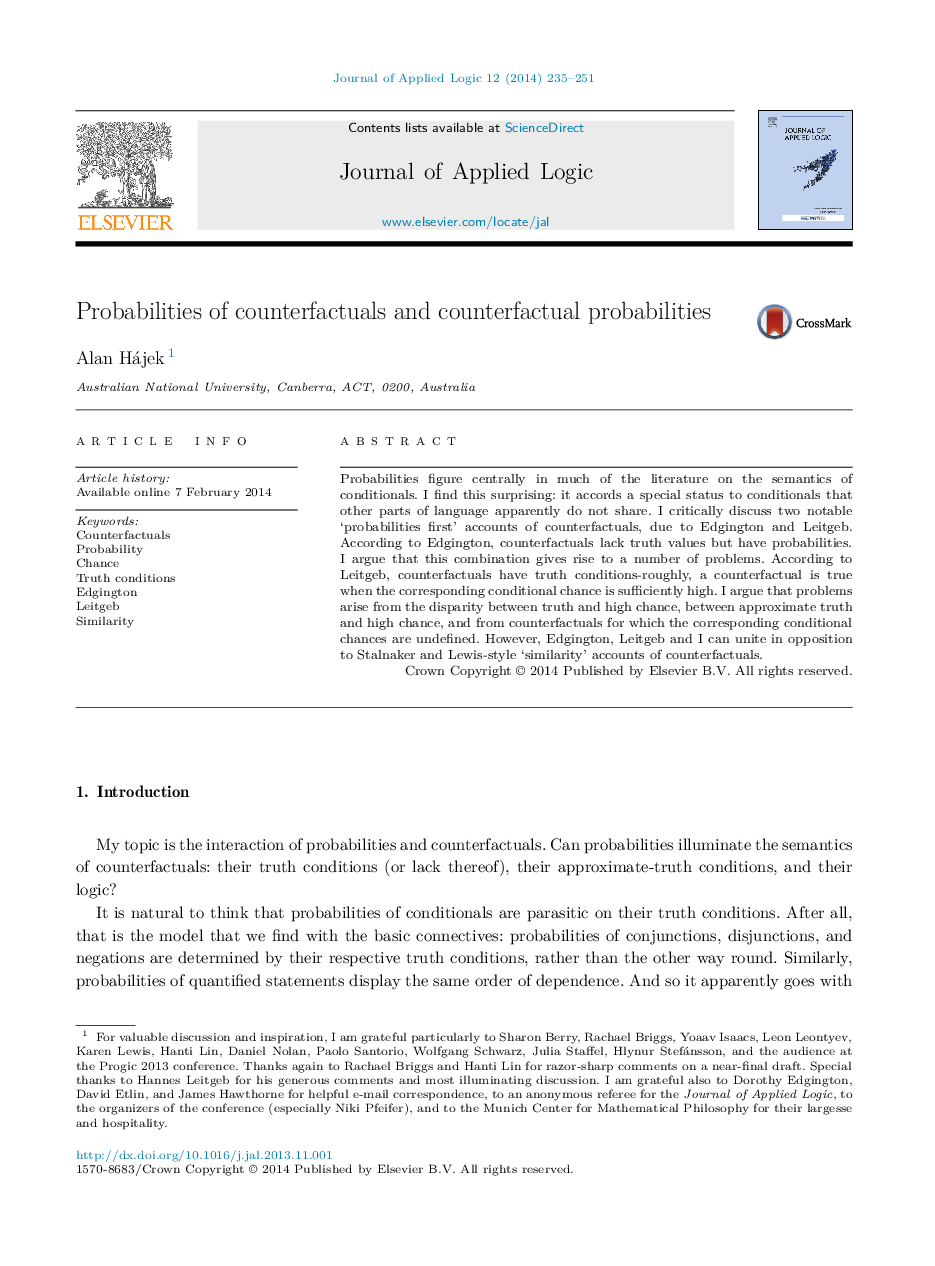| Article ID | Journal | Published Year | Pages | File Type |
|---|---|---|---|---|
| 4662863 | Journal of Applied Logic | 2014 | 17 Pages |
Probabilities figure centrally in much of the literature on the semantics of conditionals. I find this surprising: it accords a special status to conditionals that other parts of language apparently do not share. I critically discuss two notable ‘probabilities first’ accounts of counterfactuals, due to Edgington and Leitgeb. According to Edgington, counterfactuals lack truth values but have probabilities. I argue that this combination gives rise to a number of problems. According to Leitgeb, counterfactuals have truth conditions-roughly, a counterfactual is true when the corresponding conditional chance is sufficiently high. I argue that problems arise from the disparity between truth and high chance, between approximate truth and high chance, and from counterfactuals for which the corresponding conditional chances are undefined. However, Edgington, Leitgeb and I can unite in opposition to Stalnaker and Lewis-style ‘similarity’ accounts of counterfactuals.
